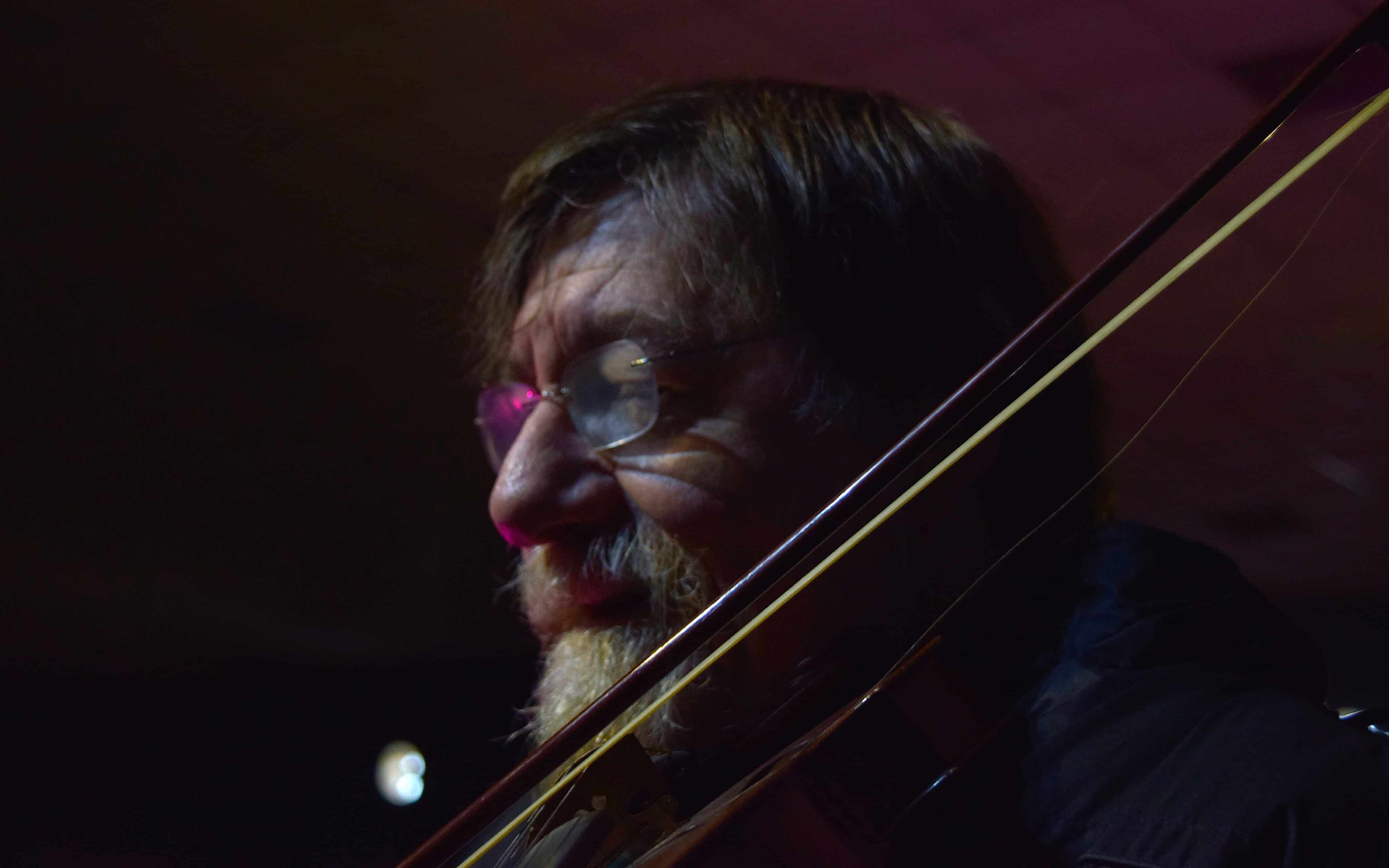Nigel Osborne has been called a Renaissance man, and that seems no less than the truth. He has a long and distinguished career as a composer. But the BASCA award focuses on his inspiration as educator and humanitarian – his pioneering use of music to support children of conflict. I reckon uniquely for a composer trained in the modernist academy, his work reaches out to diverse audiences, and to oppressed and marginalised people of Eastern Europe, Africa and most recently Syria.
He’s a political composer in a unique sense: critical of all establishments, but benign and humane. “I have been inspired by political themes and circumstances,” he comments, “but connected with how human beings feel in extreme situations”. He describes his opera The Electrification of the Soviet Union as a love story: “It only became political when it was performed in Berlin in 1989 as the Wall came down”. Occasionally he’s been unashamedly propagandist, as when his opera Sarajevo drew attention to the horror of the siege. His current piece for COMA is based on poems and reflections of refugee children he’s supported as an aid worker.
How does he see his role as a teacher? “Musical creativity is a natural and important part of being human. That is why I have worked at grass-roots – with young children, communities and so on – where I see my role as a horticulturalist, sowing seeds, watering the earth, caring for the flowers”. At college level, “It is trying to enter the creative landscape of young artists, helping them explore, and maybe at some point help them move the horizon. I am immensely proud of my students”. One of his Edinburgh students, Dee Isaacs, describes him as “probably the most influential composer championing music within marginalised communities. He has inspired so many musicians today, with his vision that creativity is at the heart of all human endeavour”.
Nigel Osborne is one of the few surviving “grand-pupils” of Arnold Schoenberg: “It was a big privilege to be taught by Egon Wellesz, Schoenberg’s first pupil. He was a metropolitan, impeccably-educated musician who had the foresight and humility to study with a suburban, largely self-taught composer – opening the door for Berg and Webern”. He is still a modernist, he says, “in spite of my bio-diversity”, and rejecting its establishment status: “Artists should be against all establishments… Politics and economics are dead. But culture is alive and kicking, and capable of changing this stupid, miserable world for the better”.
He agrees that classical music is endangered, “from massive cultural change, the new digital media, and so on. But I think it has also put itself into danger, including holding on to its title.” But he remains optimistic: “I have ended up inventing a new kind of musical life for myself – and I hope for others – that touches all aspects of human life, technologies and genres”.
Andy Hamilton
The British Composer Award for Inspiration is presented in association with the Music Publishers Association.





